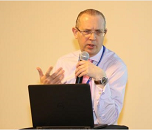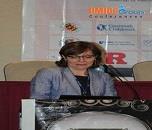Theme: To present forefront fundamental research and new emerging topics in Hematology
World Hematology 2021
World Congress on Hematology and Genetic Blood Disorders invites all the participants across the globe to attend and share their insights and convey recent development technologies and methodologies in the field of Hematology follows the theme “To present forefront fundamental research and new emerging topics in Hematology” which will be held on June 14-15, 2021. We are pleased to welcome all scientist, doctors, researches, delegates to attend Hematology Congress.
Specification of Hematology Congress:
World Hematology 2021 is one of the rapid growing and most important fields in global research. In order to support this development of Hematology and Genetic Blood Disorders, it is important that Hematology education is main priority to accelerate research. In this Hematology congress, we discuss present approaches to Hematology and discover a learning design framework so that to give guidance to the next generation of Hematologists. Major among these are the abilities to communicate and to work across and between conventional disciplines.
Who can attend?
Oncologists, Hematologists, Immunologists, Pathologists, Research Scholars, Biomedical Engineers, Biotechnologists, Industrial Professionals, Students, Hematology Doctors, Hematology Nurses, Hematology Assistants, Pediatric Hematologists, Hemoglobinopathies, Coagulopathies.
Why to attend?
World Hematology 2021 is an opportunity to meet others within specialty to network and learn the latest Technology and Applications. It is an opportunity to get knowledge from experience professors, researchers and scientists. Attending conferences will be helpful to expand your knowledge and find solutions to problems and to present your ideas and research work to others.
Benefits of attending our conference:
- Get publication of your abstract with DOI
- The opportunity to present your research
- Meet Experts & Influencers Face to Face
- Get feedback on an early version of your latest work
- Share with professors your study and get quick answers to your questions.
- Participate in a panel debate consultation with stay Q&A
- Learn from all the world's best practitioners.
- Hear about the latest research
- Engage in high-level debates and refine your ideas
- New Tips & Tactics
- Improve your skills to advance your career
- Opportunity for careers information and inspiration
Target Audience:
- Hematologists
- Oncologists
- Haematopathologists
- Scientists
- Young Researchers
- Medical Students
- Physicians/Consultants/ General Practitioners
- Nurses
- Residents
- Directors/Managers
- Pathologists
- Presidents & Vice Presidents/ Directors / Administrators
- Business Entrepreneurs
- Haematology Pharma Companies
- Medical Devices Companies
- Hematology Associations/ Societies
Track- 1: Blood and Hematology
Blood is a mixture of plasma and cells that circulate through the entire body. It is a specialized bodily fluid that supplies essential substances around the body that is sugars, oxygen, and hormones. Blood consists of plasma, red and white blood cells, and platelets.
- Plasma
- Red blood cells (RBCs), or erythrocytes
- White blood cells, or leukocytes
- Platelets , or thrombocytes
Hematology is the study of blood or science, blood-forming organs and blood diseases. In the medical background, hematology includes the treatment of blood disorders and malignancies, which includes types of hemophilia, leukemia, lymphoma and sickle-cell anemia.
Hematology Conferences 2021 | Hematology Online Meetings | Blood Disorders Congress | Hematology Summit 2021
Track-2: Blood Disorders
A blood cell disorder is a condition in which there is a problem with our red blood cells, white blood cells, or the smaller circulating cells called platelets, which are critical for clot formation. All cell types form in the bone marrow, which is the soft tissue inside our bones. Red blood cells carry oxygen to our body’s organs and tissues. White blood cells help our body fight infections. Platelets help our blood to clot. Blood cell disorders damage the formation and function of one or more of these types of blood cells. Some symtoms include:
- Fatigue,
- Shortness of breath,
- Difficulty in concentration from lack of oxygenated blood in the,
- Brain,
- Muscle weakness,
- Fast heartbeat,
- Chronic infections rapid weight loss,
- General feeling of being unwell,
- Sores that don’t heal or are slow to heal,
- Blood that doesn’t clot after cut or an injury,
- Skin that bruises easily,
- Unexplained nosebleeds and bleeding from the gums.
Hematology Conferences 2021 | Hematology Online Meetings | Blood Disorders Congress | Hematology Summit 2021
Track-3: Blood Disorders, Diagnosis and Treatment
Blood Disorders: Diagnosis and Treatment: For the principle detection of blood disorders, a Physician generally looks for Complete blood count (CBC). This is the essential test to diagnose an individual's blood disease, the doctor usually must do further blood tests. Once a doctor or a consultant finds that something is wrong with the blood corpuscle types, many additional tests are available for further detection of disease. Doctors can measure proportion of the different types of WBCs (white blood cells) and can also determine subtypes of these cells by assessing certain markers on the surface of the cells. Assessments are made to measure the extent of white blood cells to fight foreign body/ infection, to evaluate the functioning of blood platelets and their ability to clot and to check the contents of red blood cells to help determine the cause of anaemia or why the cells are not functioning properly. Most of these tests are done on blood samples, but sometime require a bone marrow sample as well for Bone Marrow Examination. Based on this diagnosis, Hematologists choose the apt treatment for specific problem. Present days we've numerous approaches to treat blood malignancies such as Chemotherapy, radiotherapy etc. Today’s advanced procedures like gene therapy is being used to treat Blood ailments. Investigators are endeavouring to search out ways that to correct the defective genes that cause Blood Disorders. However, Gene therapy hasn't established to the resolve that it is accepted therapy for blood disease. Though, investigators still take a look at gene therapy in clinical trials. Bone Marrow Transplantation, Hematopoietic stem cell therapy and Cord blood transplantation are new varieties of treatment for blood disorders.
- Bone Marrow Transplantation
- Hematopoietic stem cell therapy
- Cord blood transplantation
- Gene therapy
- Chemotherapy
- Radiation therapy
Hematology Conferences 2021 | Hematology Online Meetings | Blood Disorders Congress | Hematology Summit 2021
Track- 4: Hemostasis and Thrombosis
Hemostasis is the cessation of bleeding from a cut or severed vessel, whereas thrombosis occurs when the endothelium lining blood vessels is damaged or removed. These processes involve blood vessels, Plasma protein, and platelet aggregation that cause formation or dissolution of platelet aggregates and fibrin.
In hemostasis, there is initial vasoconstriction of the injured vessel, resulting in diminished blood flow distal to the injury. Then, hemostasis and thrombosis share following phases:
- Formation of a temporary and loose platelet aggregate at the site of injury. Platelets bind to collagen at the site of vessel wall injury, form thromboxane A2, release ADP, which activate other platelets flowing by the vicinity of the injury.
- Formation of a fibrin mesh that binds to the platelet aggregate, forming a more stable hemostatic plug/thrombus.
- Partial or complete dissolution of the hemostatic plug/thrombus by plasmin.
Types of Thrombi:
- The white thrombus is comprised of platelets and fibrin and is relatively poor in erythrocytes. It forms at the site of an injury or abnormal vessel wall, particularly in areas where blood flow is rapid (arteries).
- The red thrombus primarily consists of red cells and fibrin. It morphologically resembles the clot formed in a test tube and may form in vivo in areas of retarded blood flow or stasis (veins) with or without vascular injury, or it may form at the site of injury.
Hematology Conferences 2021 | Hematology Online Meetings | Blood Disorders Congress | Hematology Summit 2021
Track- 5: Blood Transfusion
A blood transfusion is a way of adding blood to our body after an illness or injury. If our body is missing one or more of the components that make up healthy blood, a transfusion can help supply what our body is missing. Depending on how much blood we need, a transfusion can take between 1 and 4 hours.
Our blood is made up of several different parts including red and white cells, plasma, and platelets. “Whole blood” refers to blood that has all of them. In some cases, we may need to have a transfusion that uses whole blood, but it’s more likely that we will need a specific component.
There are many reasons we might need to receive a blood transfusion. These are just a few of them:
- We have had major surgery or a serious injury and we need to replace lost blood
- We have experienced bleeding in our digestive tract from an ulcer or other condition
- We have received cancer treatments like radiation or chemotherapy
- We have a blood disorder or severe liver problems
Hematology Conferences 2021 | Hematology Online Meetings | Blood Disorders Congress | Hematology Summit 2021
Track-6: Hematology and Cardio-Oncology
Cardiovascular problems through blood and therefore the system that gives laboratory values regarding blood, the circulatory system and secures cardiovascular diseases from the Chinese medicine and western medicine perspectives.
Cardio-Oncology is to seek out a balance between oncologic efficacy and reducing antagonistic cardiovascular results over timely publication and broadcasting of research. Cardiac imaging and transthoracic echocardiography play an important role within the baseline assessment and serial follow-up of cardio-oncology patients. Scientific indication in the administration of cardiovascular jerks of onco-hematological patients is unusual, as these patients have been systematically omitted from clinical trials and up-to-date approvals are based on expert consent. Cardio-hematology which permit its claim in regular clinical preparation so to market the expansion of local multidisciplinary crews, to rally the cardiovascular health of patients with cancer.
Hematology Conferences 2021 | Hematology Online Meetings | Blood Disorders Congress | Hematology Summit 2021
Track- 7: Neuro-hematology
The crossing point between hematology and neurology is broad, and neurological complications within the course of hematologic ailment are recurrent and diverse. Polycythaemia, in which there are increased numbers of red blood cells with iron deficient. Polycythaemia and therefore the comparative Sideropenia cause amplified blood viscosity with connected neurological symptoms and signs. Haematological conditions that lead into neurological manifestations are Thrombophilia, antiphospholipid antibody syndrome, thrombotic thrombocytopenic purpura, sickle cell, myeloma, leukemias, lymphomas and clonal disorders. These are considered into amiable and malignant situations.
Hematology Conferences 2021 | Hematology Online Meetings | Blood Disorders Congress | Hematology Summit 2021
Track-8: Immunohematology
Immunohematology is the study of reactions that take place between antigens present on blood cells and antibodies present in plasma. Patients undergoing transfusion therapy are tested for their ABO and RhD blood groups and the presence of any antibodies that may create a reaction between their plasma and donor red cells. A range of tests are available to use to detect and identify antibodies in the patient's plasma from simple tube and gel tests to more complex absorption and elution techniques as well as advanced molecular techniques. These same tests will also identify if the antigen is present on the patient's red cells. For patients with hematological conditions such as auto immune hemolytic anemia, a wide range of immune-hematological techniques are used to identify and resolve the diagnostic problems in these patients. Molecular techniques are increasingly used in immunohematology to determine the antigen profile of patients, resolve complex problems and large scale red cell typing.
Hematology Conferences 2021 | Hematology Online Meetings | Blood Disorders Congress | Hematology Summit 2021
Track- 9: Clinical Hematology
The IACH (International Academy for Clinical Hematology) is founded by an international group of physicians whose focus is to stimulate good clinical practice in the field of clinical hematology. There is a rapid grow in global demand for academic continuing education of hematologists comprising clinical skills for patient management, standardization of real-life treatment procedures, as well in the performance of routine and comprehensive care in different fields of hematology. Actually, hematology is likely the most dynamic medical specialty with respect to new pathophysiology findings and their implementation in new therapies. The development of new drugs (targeted therapies, immunotherapy, etc.) is accompanied by a growing demand for sharing experiences in order to improve the quality of patient treatment and care via the development of professional competencies and excellence. In order to attain these objectives, cooperation is needed amongst the health professionals worldwide under a common umbrella to promote health care capacities by sharing scientific and clinical knowledge, methods and skills.
Hematology Conferences 2021 | Hematology Online Meetings | Blood Disorders Congress | Hematology Summit 2021
Track-10: Multiple Myeloma and Other Plasma Cell Disorders
Plasma cell dyscrasias are defined as heterogeneous disorders arising from the proliferation of a monoclonal population of plasma cells. Some of these disorders can present fortuitously as benign processes that can be observed; others are highly aggressive and require immediate intervention. The most common plasma cell dyscrasia is monoclonal gammopathy of undetermined significance (MGUS), a benign state that can be observed. Related disorders include smouldering multiple myeloma (SMM), multiple myeloma (MM), solitary plasmacytoma of the bone, extra medullary plasmacytoma, Waldenström macroglobulinemia (WM), primary amyloid light-chain (AL) amyloidosis, heavy-chain disease, POEMS (polyneuropathy, organomegaly, endocrinopathy, monoclonal gammopathy, and skin changes) syndrome, and the recently recognized TEMPI (telangiectasias, elevated erythropoietin and erythrocytosis, monoclonal gammopathy, perinephric fluid collection, and intrapulmonary shunting) syndrome.
Multiple myeloma is a malignant proliferation of plasma cells. Effectively in all cases, myeloma cells (as well as their precursors MGUS and SMM) secrete immunoglobulins. Usually, myeloma cells secrete immunoglobulin (Ig) G (60%); other types are less common (IgA 20%, IgD 2%, IgE <0.1%, biclonal <1%). Light chain–only secretion is noted in 18%; <5% of patients do not secrete a heavy- or light-chain immunoglobulin (nonsecretory MM).
Hematology Conferences 2021 | Hematology Online Meetings | Blood Disorders Congress | Hematology Summit 2021
Track-11: Hematology and Pharma Industry
The worldwide market of the hematological medications is in top point because it is usually anticipated to be enhanced over the few decades. As per the worldwide market expert the hematology medicate and expressive market is relied upon to develop at the rate of 7.5% from 2015-2021. Some of the highest pharmaceutical industries producing Biological Drugs and Generic Drugs incorporate. Bristol-Mayers Squibb, Boehringer Ingelheim, Roche, Novartis, Celgene, Johnson and Johnson, Lilly, Takeda, AstraZeneca, Merck and Co., Amgen, Janssen biotech, Pfizer, Astellas, Bayer, Otsuka, Sanofi, Eisai, AbbVie, Merck KGaA, Pharmacyclics and Incyte.
- Biological drugs
- Generic drugs
- Increased investments
- Healthcare expenditures
Hematology Conferences 2021 | Hematology Online Meetings | Blood Disorders Congress | Hematology Summit 2021
Track-12: Hematologic Malignancies
Blood hematologic cancers generally begin in the bone marrow where blood is produced. Stem cells in the bone marrow grow into white blood cells, red blood cells, or platelets. Blood cancers occur when uncontrolled growth of abnormal blood cells overtakes the development of normal blood cells and interferes with the regular functions of these cells. Blood cancers are of three categories: leukemia, lymphoma, and myeloma.
Myeloma is a type of cancer that occurs in plasma cells. Normal plasma cells develop antibodies that fight disease and infection. Though, when abnormal myeloma cells develop, they interfere with the antibody production and lead to lessened immunity.
Hematology Conferences 2021 | Hematology Online Meetings | Blood Disorders Congress | Hematology Summit 2021
Track-13: Acute Leukemias and Myelodysplastic Syndrome
Myelodysplastic syndromes is a hematologic disease that commonly affect older adults. Treatment is challenging due the morbidity of the disease and toxicity of associated treatments with strategies ranging from best supportive care to hematopoietic stem cell transplantation. It’s a type of cancer of the blood and bone marrow that affects white blood cells. Acute leukemia is the most common childhood cancer. It usually occurs when a bone marrow cell develops errors in its DNA. Symptoms of this disease include enlarged lymph nodes, bruising, fever, bone pain, bleeding from the gums and frequent infections. Treatments may include chemotherapy, targeted drugs that specifically kill cancer cells.
Hematology Conferences 2021 | Hematology Online Meetings | Blood Disorders Congress | Hematology Summit 2021
Track-14: Pediatric Hematology
If our child or teen has a blood disease or cancer, a pediatric haematologist has the experience and qualifications to evaluate and treat our child or teen. The uncommon nature of care of children or teens with blood diseases and cancer is learned from advanced training and experience in practice. Pediatric hematologists treat children and youth from birth through young adulthood.
Pediatric hematologists/oncologists diagnose and treat children and teens with the following:
- Cancers including leukemias, lymphomas, brain tumors, solid tumors, and bone tumors
- Diseases of blood cells including disorders of white cells, red cells, and platelets
- Bleeding disorders
Hematology Conferences 2021 | Hematology Online Meetings | Blood Disorders Congress | Hematology Summit 2021
Track-15: Digital Imaging in Hematology
Developments in electronic imaging, computers, and the Internet have given rise to in the speedy exposure of digital imaging in pathology. The Bloodhound system is an instrument that is designed to print blood onto a slide with a controlled method, automatically stain cells, perform a CBC with WBC differential, and locate WBCs by digital imaging, all in an analyser with a footprint of 42 inches. Negligible Hematology Analyzer Plus Blood Smear Digital Imaging/ Analysis make available better Clinical Hematology results than a Compound Hematology Analyzer. Digital Imaging works in daily routine for leukocytes in peripheral blood and other fluids is reliable, accurate and displays a high blast cell sensitity.
Hematology Conferences 2021 | Hematology Online Meetings | Blood Disorders Congress | Hematology Summit 2021
Track-16: Stem Cell Therapy
Stem cell therapy is a kind of treatment where stem cells are used to prevent a disease. Haematopoietic stem cells are generally derived from bone marrow, or peripheral blood. Bone marrow transplantation is extensively used stem cell therapy. It may be autologous, syngeneic or allogeneic. Stem cell research dispenses with research and publication of high-quality manuscripts related to stem cells. Stem cells are cells of multicellular organisms that can adapt into other types of cells. They can divide new cells of the same type of stem cells. A cell to be considered a stem cell, it should be self-renewing and must be either totipotent or pluripotent. Different types of stem cells such as embryonic stem cells, foetal and adult stem cells tissue specific stem cells, haemopoietic stem cells, cancer stem cells are known. Haemopoieticstemcells that give rise to other blood cells by a process called Haemopoiesis in the red bone marrow. Haemopoietic stem cell transplants are used in the treatment of cancers and other immune system disorders.
Hematology Conferences 2021 | Hematology Online Meetings | Blood Disorders Congress | Hematology Summit 2021
Track-17: Hematology: Diagnostics and Screening:
The channel of medicine that concern with the learning of the origin, diagnosis, therapy and anticipation of diseases related to blood. It comprises treating diseases that mark the production of blood and its components, for example blood cells, blood proteins, bone marrow, haemoglobin, platelets, spleen, blood vessels and the method of coagulation. Such disease might embrace hemophilia, blood clots, added bleeding disorders and blood cancers such as leukemia, lymphoma and multiple myeloma. The test centre grub that goes into the study of blood is recurrently performed by a medical technologist or medical laboratory scientist. Treating of blood disorder may differ for every particular disorder, include use of coagulation factor support, immune modulating therapies, chemotherapy, bone marrow transplantation palliative care must be taken for the patients with complex disorder. Usually, through physical investigations, medical reports are used to spot the ailments by physicians to initiate the best therapy.
Hematology Conferences 2021 | Hematology Online Meetings | Blood Disorders Congress | Hematology Summit 2021
Track-18: Biomarkers in Hematology and Oncology:
Biomarkers are the biological molecules found in blood, other body fluids, or tissues, which explains a symbol of a normal or anomalous progression, or illness. These are used to see how well the body answers to a treatment for an illness or disorder. These are also defined as molecular marker and signature molecule. A cancer biomarker is a gene or substance that notices the occurrence of cancer in the body that are particularly associated with genetic mutations, which determine whether individuals are permitting to particular type of cancer.
Biomarkers are used in three principal modes in medicine and cancer research. These are:
- To aid detect complaints in the identification of early phase Malignancies
- To predict how antagonistic an ailment is Prognostic
-
To predict how sound a patient will retort to therapy
Hematology Conferences 2021 | Hematology Online Meetings | Blood Disorders Congress | Hematology Summit 2021
Track-19: Effect of Advanced Technologies on Blood Based Products
A blood product may also be defined as a therapeutic substance that is acquired from human blood. Some of the blood based products are: Whole blood - which is rarely used in transfusion medicine. Blood components - Suspension of red blood cells, white blood cells and platelets; Plasma derivatives - Plasma proteins like albumin, coagulation factor suspension and immunoglobulin. Manufacturers began introducing new testing techniques and automation into the transfusion medicine marketplace in order to meet the challenges of competition and downsizing as we approach the 21st century. These testing technologies include solid phase assays, gel tests, and affinity column.
- Solid Phase Technology
- Gel Technology
- Affinity Column Technology
Hematology Conferences 2021 | Hematology Online Meetings | Blood Disorders Congress | Hematology Summit 2021
Track-20: Molecular Typing for Blood
The aspect of many clinically significant antigens is determined by single nucleotide polymorphisms (SNPs). Detecting these SNPs can predict the red cell phenotype and is the alternative to serological typing. Multiple SNPs may be included in a single assay, allowing efficient screening for multiple antigens. For this reason, molecular typing is eminently suitable for the mass screening of blood donors and is expected to greatly expand the pool of blood donors who are negative for multiple antigens or negative for a high-prevalence antigen. Molecular typing provides the means to identify antigen-negative donors when typing antisera are not available. For example, typing antisera for Dob antigen (Dombrock group) are opprobriously unreliable, and molecular typing for the DO gene mutation, 793A>G, that encodes the Dob antigen is a superior means of identifying Dob-negative donors for the patient with anti-Dob. This feature has also been applied to better characterize the reagent cell panels that are used for patient antibody identification.
Hematology Conferences 2021 | Hematology Online Meetings | Blood Disorders Congress | Hematology Summit 2021
Track-21: Anemia in Pregnancy
When you are pregnant, you may develop anemia. And when you have anemia, your blood doesn't have enough healthy red blood cells to transport oxygen to your tissues and to your baby. During pregnancy condition, your body produces more blood to support the growth of your baby. If you are not getting enough iron or certain other nutrients, your body might not be able to produce the amount of red blood cells (RBCs) it needs to make this additional blood. It's now common to have mild anemia when you are pregnant. But you may have more severe anemia from low iron or vitamin levels or from other reasons. Anemia can leave you feeling weak and tired. If it is severe but if remain untreated, it can increase your risk of serious complications like preterm delivery. Here is what you need to know about the causes, symptoms, and treatment of anemia during pregnancy:
- Iron-deficiency anemia
- Folate-deficiency anemia
- Vitamin B12 deficiency
Hematology Conferences 2021 | Hematology Online Meetings | Blood Disorders Congress | Hematology Summit 2021
Track-22: Automated Hematology
Hematology automation has progressed rapidly since Wallace Coulter first applied electrical impedance technology to counting red cells and white cells. By the end of 1980s, most hematology laboratories were reporting out a 7-parameter complete blood count (CBC) and three-part differential obtained from a single aspiration on a stand-alone, bench-top tool. Eventually, this process was upgraded even further when it became possible to obtain these outcomes without uncapping the sample. When this became state-of-the-art, CBC turnaround time (TAT) was primarily dependent on how fast a laboratorian could do a manual 100-cell differential and or a manual reticulocyte count. Manufacturers have introduced finely tuned hematology analyzers that achieve good levels of precision and accuracy in cell counting through the examination and identification of thousands, not hundreds, of cells in each sample analyzed. The challenge of reporting exact results for immature cells using manual methods is exemplified with manual reticulocyte counts, which routinely have a CV of approximately 25%. Manual methods, even for immature cell counts, are being replaced with precise, reliable automated hematology systems that provide faster reportable outcomes within the first aspiration.
Hematology Conferences 2021 | Hematology Online Meetings | Blood Disorders Congress | Hematology Summit 2021
Advantages of Participating at our Webinar
- The advantages of the Speaker and abstract pages are created in Google on your profile under your name would get worldwide visibility.
- Our comprehensive online advertising attracts 30000+ users and 50000+ views to our Library of Abstracts, which takes researchers and speakers to our webinar.
- Meet with hundreds of like-minded experts who are pioneers in Hematology blood disorders and Therapeutics and share ideas.
- All participants in the webinar would have a different reason to participate with eminent speakers and renowned keynote speakers in one-to-one meetings.
- A rare opportunity to listen what the world's experts are learning about from the world's most influential researchers in the area of Hematology blood disorders at our Keynote sessions.
- World Hematology 2021 intensive webinar schedule, you will acquire experience and expertise in strategic gift preparation that is worth its weight golf, forming an impressive array of recognised professionals.
- Best Poster Award nominations.
- Award for Outstanding Young Researcher.
- Group Registration Advantages.
Benefits of Participation for Speaker
- Worldwide appreciation of the profile of Researchers.
- Obtain credits for professional growth.
- Explore the latest of cutting edge analysis.
- Make long-term bonds at social and networking activities.
- An ability to advertise one page in the distribution of abstract books and flyers that ultimately gets 1 million views and adds great value to your research profile.
- Learn a transition beyond your area of interest to learn more about new subjects and studies away from your core subject of Hematology and Genetic Blood Disorders.
- We have distinctive networking, learning and enjoyable integration into a single package.
Benefits of Participation for Delegate
- Professional Development-Improve understanding and knowledge.
- Attendance at webinars supports rejuvenates and energises delegates.
- Your involvement in our webinar will help with a new methodology and ideology that can be used to broaden the outcomes of businesses or industries.
- Opportunities for Hematology and Genetic Blood Disorders Summit researchers and experts in the same field to meet and exchange new ideas through an online webinar.
Benefit of Participation for Sponsor
- Exposure to the international environment would increase the possibility of new companies.
- Opportunity to demonstrate your company's latest technologies, new products, or service your business to a wide range of international participants.
- Increase business by our webinar participants through lead generation.
- It takes a lot of time, effort and drive to create a successful company, so it's always nice to have a network of colleagues and associates to draw energy from individuals who share a common drive and objective.
- Webinars in Hematology and Genetic Blood Disorders provide opportunities for more attention and contemplation that could help you move your company to the next stage.
- Benchmarking main organization plans and moving it forward.
- Get feedback from trustworthy people at our webinar to your company questions and challenges.
- On our webinar banner, website and other proceedings, branding and marketing content, the advertising logo of your company.
Benefit of Association for Collaborators
- Nobody has these massive visitors to Hematology and Genetic Blood Disorders in the world this is the best forum to highlight society.
- Creating long-lasting peer relationships.
- In our webinar banner, website and other proceedings, branding and marketing material, promotional content and your Organization logo will increase your number of subscribers/members by 40%.
- The exposure of our event to your Company listing in the Global Business forum will have a great effect on your association.
- Your representatives can network to update their knowledge and understanding of your organisation and services with key webinar delegates.
- Hematology and Genetic Blood Disorders advertising materials such as posters, brochures, pamphlets, services that will be circulated to hospitals, universities, society and researchers will be integrated with information.
Conference Highlights
To share your views and research, please click here to register for the Conference.
To Collaborate Scientific Professionals around the World
| Conference Date | June 14-15, 2021 | ||
| Sponsors & Exhibitors |
|
||
| Speaker Opportunity Closed | |||
| Poster Opportunity Closed | Click Here to View | ||
Useful Links
Special Issues
All accepted abstracts will be published in respective Our International Journals.
Abstracts will be provided with Digital Object Identifier by



























